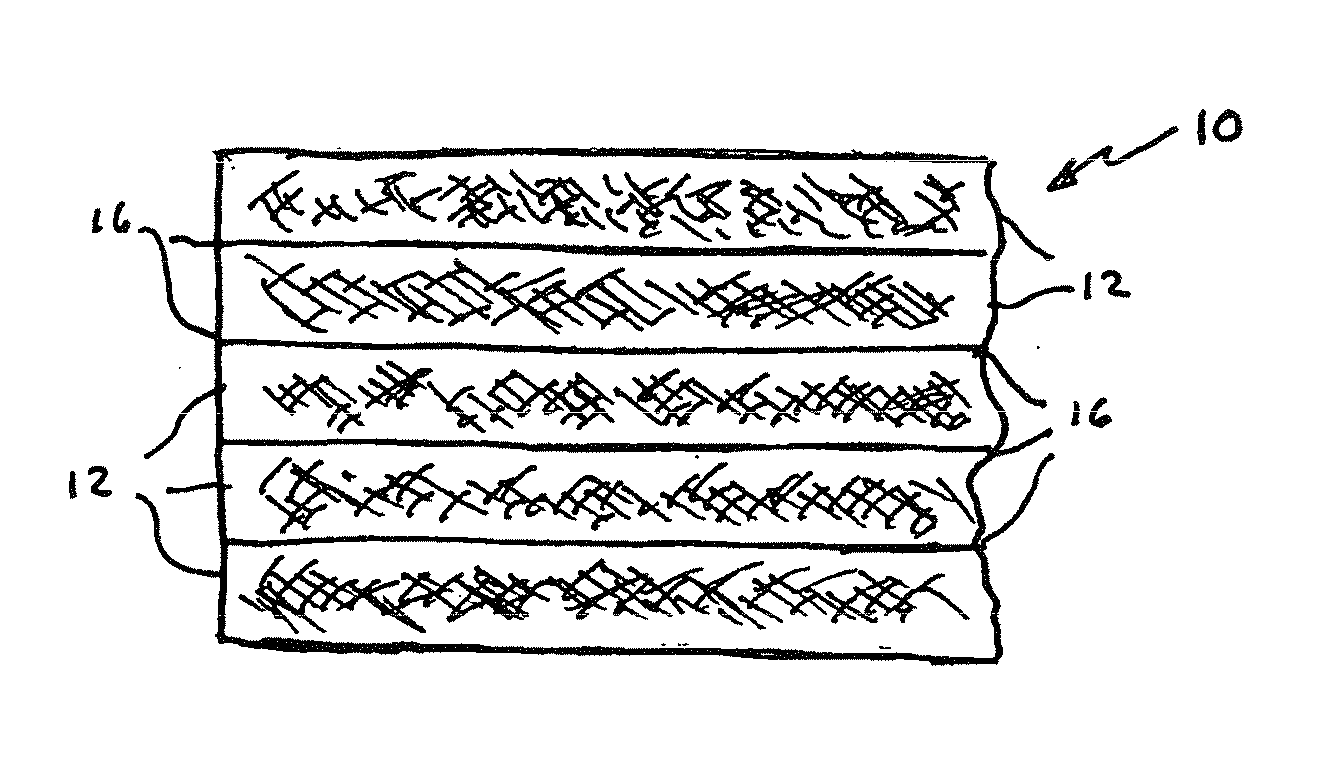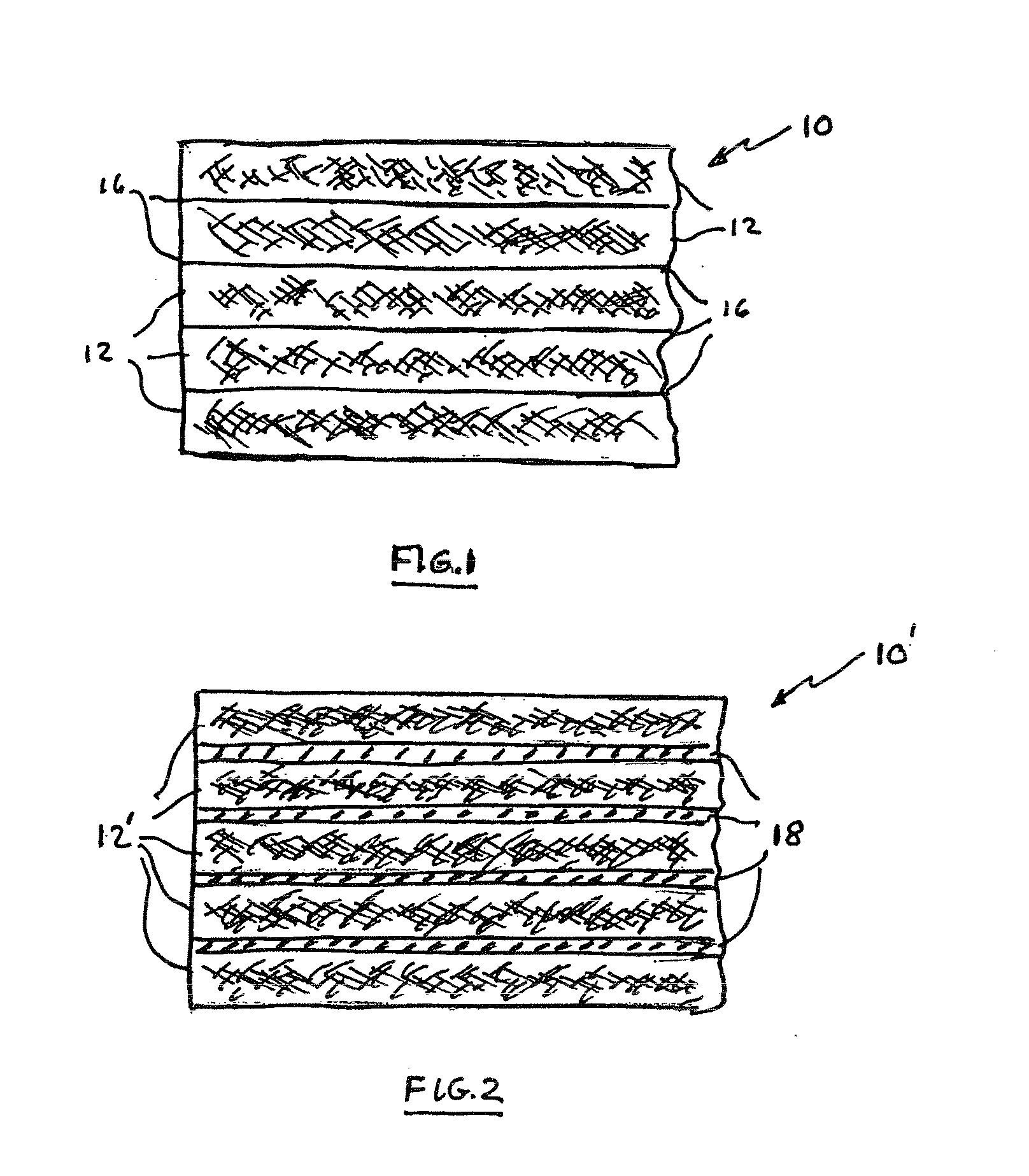Planar Elements for Use in Papermaking Machines
a technology of papermaking machine and planar elements, applied in papermaking, non-fibrous pulp addition, coatings, etc., can solve the problem of insufficient wear resistance of materials for the required period of time, and achieve the effect of improving the uniformity and homogeneous nature of coating edges, flexural strength, and enhancing the uniformity and homogeneity of coating edges
- Summary
- Abstract
- Description
- Claims
- Application Information
AI Technical Summary
Benefits of technology
Problems solved by technology
Method used
Image
Examples
Embodiment Construction
[0027]With reference initially to FIG. 1, a planar element in the form of a doctor blade constructed in accordance with the present invention is shown at 10 comprising a composite of multiple layers 12 of resin-impregnated fabrics (commonly referred to as “pre-pregs”). The pre-pregs may typically comprise woven or non-woven, unidirectional or multidirectional glass, carbon or aramid fibres, a representative example being 200 gsm plane weave E-glass style 7628 or high strength standard modulus carbon T300 supplied by PD Interglas Technologies Ltd. of Sherborne, U.K.
[0028]The layers 12 are impregnated and surface coated with a resin containing a dispersion of clay nanoparticles. A representative resin dispersion is a bisphenol A type epoxy resin supplied by Bakelite Polymers UK Ltd. of Telford, U.K., with clay nanoparticles added to and uniformly dispersed therein in an amount of 15% by weight of the resin matrix. The resin interfaces at 16 serve to adhere the layers 12 together durin...
PUM
| Property | Measurement | Unit |
|---|---|---|
| thicknesses | aaaaa | aaaaa |
| size | aaaaa | aaaaa |
| angle | aaaaa | aaaaa |
Abstract
Description
Claims
Application Information
 Login to View More
Login to View More - R&D
- Intellectual Property
- Life Sciences
- Materials
- Tech Scout
- Unparalleled Data Quality
- Higher Quality Content
- 60% Fewer Hallucinations
Browse by: Latest US Patents, China's latest patents, Technical Efficacy Thesaurus, Application Domain, Technology Topic, Popular Technical Reports.
© 2025 PatSnap. All rights reserved.Legal|Privacy policy|Modern Slavery Act Transparency Statement|Sitemap|About US| Contact US: help@patsnap.com


